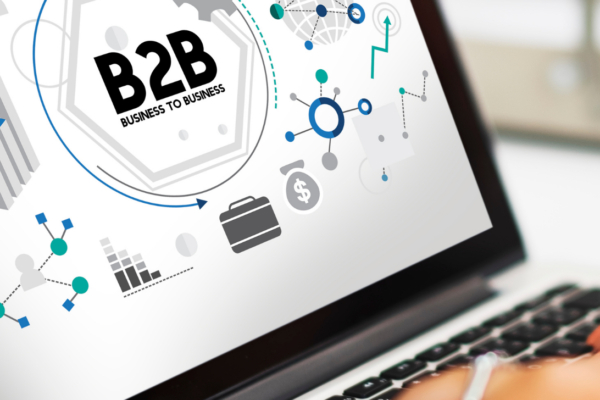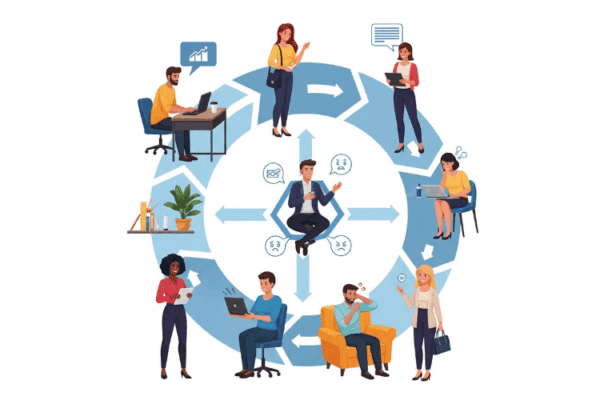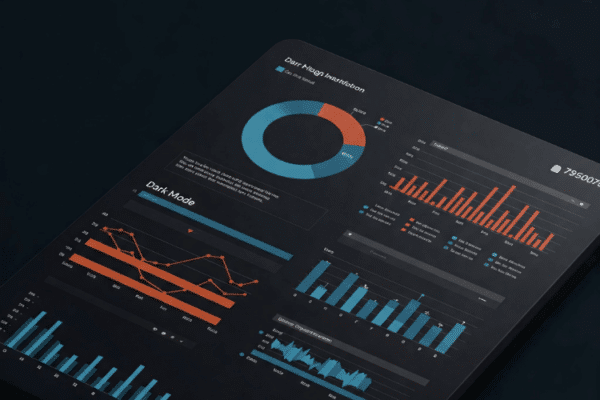The AI Marketing Playbook: Strategies for Success in 2025
The AI Marketing Playbook: Strategies for Success in 2025
Artificial Intelligence (AI) is rewriting the rules of the game in the 2025 marketing world, offering brands the opportunity to forge deeper connections with their customers than ever before. This ‘playbook’ will guide you to success with AI-powered marketing strategies and present the most current approaches. Let’s step into the future of marketing together and explore the endless possibilities AI offers.
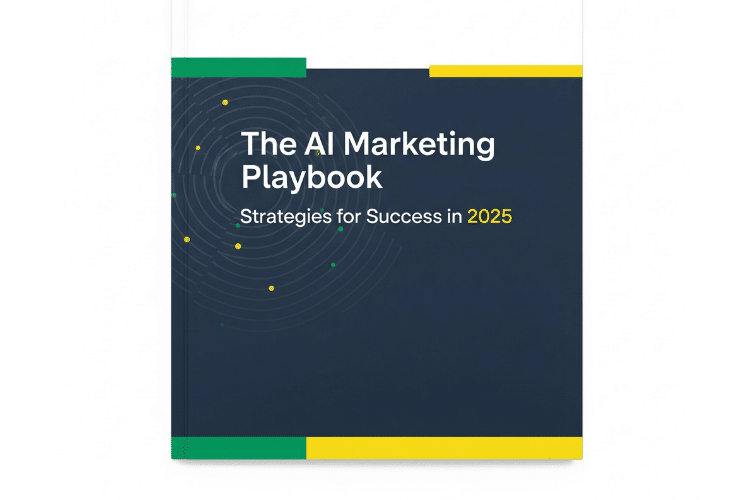
AI-Driven Hyper-Personalization: Crafting Unique Customer Journeys at Scale in 2025
In 2025, Artificial Intelligence is making hyper-personalization more accessible and effective than ever; you’ll no longer get lost in endless integrations, APIs, and XML files to offer each customer a tailored experience. AI algorithms analyze users’ past behaviors, preferences, and real-time interactions, enabling you to reach them with the right content at the right time.
For example, platforms like Netflix and Spotify are taking personalization to its peak in 2025 by using AI to offer each user custom content streams and playlists. Similarly, e-commerce giants like Amazon are boosting conversion rates by offering personalized product recommendations and dynamic website content to every visitor through AI algorithms that analyze real-time behavioral data. This level of personalization strengthens customer loyalty, increases engagement, and consequently, positively impacts sales. Thanks to AI, these complex processes can be managed efficiently even at large scales.
Building Your 2025 AI Marketing Stack: Essential Tools and Integrations
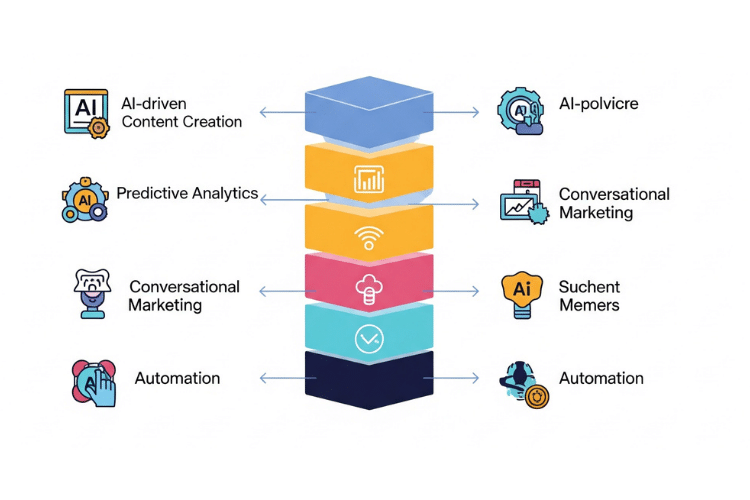
Implementing a successful AI marketing strategy in 2025 hinges on selecting the right tools and integrating them with each other. Your marketing stack should be carefully crafted according to your business goals and needs.
For instance, AI-powered CRM platforms like HubSpot or Salesforce allow you to create personalized campaigns and customer journeys by deeply analyzing customer data. Google Analytics 4’s advanced AI features play a key role in predicting user behavior and performing advanced audience segmentation. While various AI software based on language models like GPT-4 and similar come to the fore for content creation and optimization, in advertising, the native AI-based targeting and optimization algorithms of platforms like Meta (Facebook/Instagram) and Google Ads are prominent. The seamless integration of these different tools via APIs centralizes data flow and maximizes the efficiency of your marketing operations.
The AI Content Revolution: Generating, Optimizing, and Distributing Content Smarter for 2025
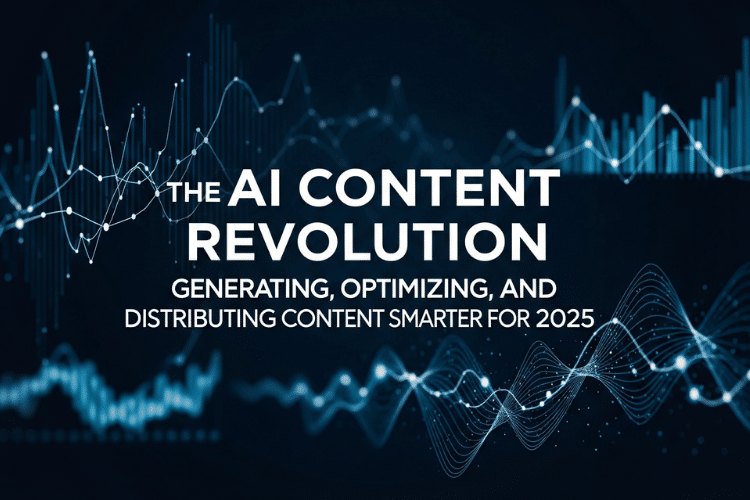
In 2025, AI is radically changing every stage of content marketing; all processes, from idea generation to distribution, are now smarter.
As of 2025, advanced AI writing tools like Jasper (formerly Jarvis) or Copy.ai offer marketers quick starting points for various content, from blog posts to social media texts, and even email drafts. AI’s role is also growing in creating simple visual and video elements, not just text.
Platforms like Semrush’s SEO Writing Assistant tool or MarketMuse help content rank higher in search engines and reach the right audience by performing AI-driven, SEO-focused content optimization. AI also optimizes distribution strategies by determining which channels content should be published on and when. However, it should not be forgotten that no matter how advanced AI becomes, authenticity, creativity, and the human touch will continue to be indispensable elements of effective content.
Measuring Success in AI Marketing: KPIs and Analytics for Your 2025 Playbook
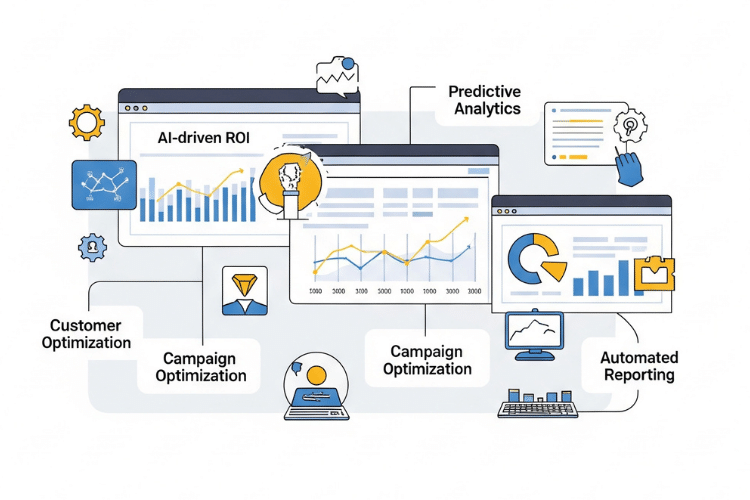
Tracking the right metrics (KPIs) is vital to prove the effectiveness of your AI marketing investments and continuously improve your strategy. In 2025, you should focus on AI-specific success indicators in addition to traditional marketing metrics. For example, an e-commerce site can analyze how much its AI-powered product recommendation engine increases the average order value (AOV) and customer lifetime value (CLTV). KPIs such as the direct impact of AI-powered personalization campaigns on conversion rates, the engagement metrics (likes, shares, comments) of AI-generated content, and the First Contact Resolution (FCR) rate of AI chatbots are also important. For a SaaS company, how an AI-based lead scoring system affects the number of qualified leads converting to sales (SQLs) and the customer acquisition cost (CAC) provides valuable data. This data will clearly reveal the true return on investment (ROI) of your AI strategy and guide your future decisions.


